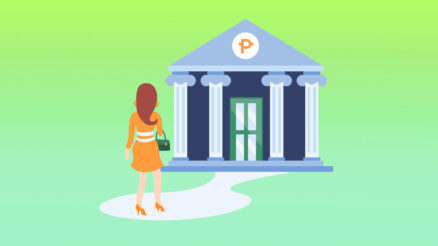Many Filipinos rely on informal financial services, such as lending circles (paluwagan) and pawnshops (sanglaan), to meet their financial needs. These services have been deeply ingrained in the Filipino culture and provide a lifeline for those who lack access to formal financial institutions. However, it is important to understand the pros and cons of both formal and informal financial services to make informed decisions about managing personal finances.

Loan type
Short termFor a period of
180 daysRate ()
0.00% / monthLoan amount
PHP 25,000Approval in
5 minutesFirst loan free
no
Loan type
Short termFor a period of
180 daysRate ()
0.00% / monthLoan amount
PHP 20,000Approval in
5 minutesFirst loan free
no
Loan type
Long termFor a period of
4 monthsRate (PSK)
0.00% / monthLoan amount
PHP 25,000Approval in
5 minutesFirst loan free
no
Loan type
Short termFor a period of
365 daysRate ()
0.00% / dayLoan amount
PHP 20,000Approval in
15 minutesFirst loan free
no
Loan type
Short termFor a period of
90 daysRate ()
0.00% / dayLoan amount
PHP 25,000Approval in
15 minutesFirst loan free
no
Loan type
Short termFor a period of
365 daysRate ()
0.00% / dayLoan amount
PHP 50,000Approval in
15 minutesFirst loan free
no
Loan type
Short termFor a period of
90 daysRate ()
0.00% / dayLoan amount
PHP 20,000Approval in
15 minutesFirst loan free
noFormal Financial Services
Formal financial services refer to the services provided by banks, credit unions, and other regulated financial institutions. These institutions are governed by strict regulations and provide a wide range of financial products and services, including savings accounts, loans, insurance, and investment options.
One of the main advantages of formal financial services is the security and protection they offer. Deposits in banks are insured by the Philippine Deposit Insurance Corporation (PDIC), providing peace of mind to depositors. Additionally, regulated financial institutions are required to comply with anti-money laundering and customer protection laws, ensuring the safety of transactions and the rights of consumers.
Moreover, formal financial services provide access to credit at competitive interest rates. Banks and other financial institutions have established credit evaluation processes that consider factors such as credit history, income, and collateral. This enables individuals and businesses to access larger amounts of credit for various purposes, such as starting a business, purchasing a home, or funding education.
Informal Financial Services
Informal financial services, on the other hand, are often community-based and operate outside the regulatory framework. These services are deeply rooted in Filipino culture and provide a sense of community and trust. Examples of informal financial services include lending circles (paluwagan) and pawnshops (sanglaan).
One of the main advantages of informal financial services is accessibility. Informal financial services are often readily available in local communities, making it easier for individuals to access credit or other financial services without the need for extensive paperwork or credit checks.
Informal financial services also provide flexibility in terms of loan amounts and repayment terms. Lending circles, for example, allow individuals to contribute a certain amount of money regularly and take turns receiving the pooled funds. This can be particularly helpful for those who may not qualify for loans from formal financial institutions or need smaller amounts of money for immediate needs.
However, it is important to note that informal financial services come with their own set of risks and disadvantages. The lack of regulation and oversight can make these services susceptible to fraud and abuse. Borrowers may also face higher interest rates and fees compared to formal financial institutions.
Choosing the Right Financial Services
When deciding between formal and informal financial services, it is important to consider individual needs and circumstances. Formal financial services offer security, protection, and access to a wider range of financial products. They are particularly beneficial for those who need larger amounts of credit, want to build a credit history, or require long-term financial planning.
On the other hand, informal financial services can be a viable option for those who need immediate access to smaller amounts of money or have difficulty qualifying for loans from formal financial institutions. However, individuals should exercise caution and ensure they are dealing with reputable providers to minimize the risks associated with informal financial services.
Ultimately, a combination of both formal and informal financial services may be the most suitable approach for many Filipinos. By leveraging the benefits of formal financial services while also tapping into the accessibility and flexibility of informal financial services, individuals can effectively manage their financial needs and achieve their goals.
In conclusion, the choice between formal and informal financial services is a personal one that depends on individual circumstances and preferences. Understanding the pros and cons of both options is crucial in making informed decisions about managing personal finances. Whether it is through regulated banks or trusted community-based services, Filipinos have a range of financial options to meet their needs and secure their financial future.




